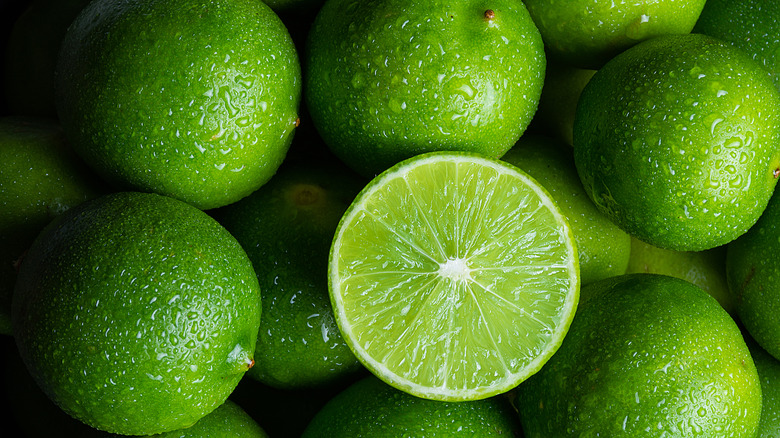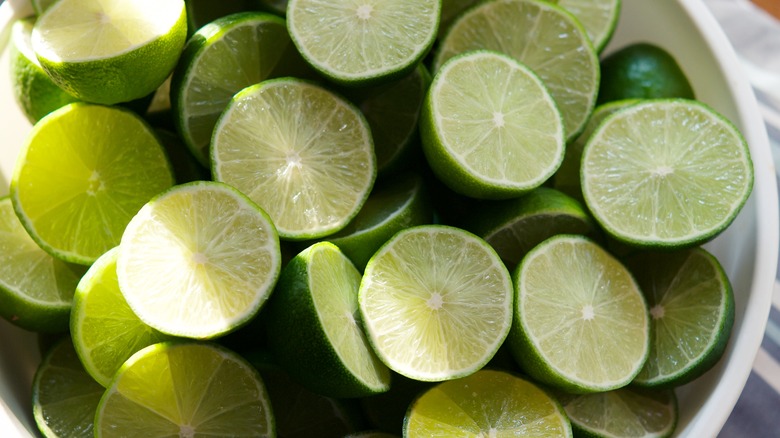The Absolute Best Ways To Store Limes
Limes play an essential role in so many of our favorite summer recipes. Whether you're squeezing a wedge over sweet and savory glazed salmon or making an old-fashioned key lime pie for dessert, it's always a smart move to have some of this versatile citrus on hand.
Unfortunately, fresh limes don't last forever. According to Does It Go Bad, using your senses can usually help you determine if you have a decent piece of fruit on your hands — or if it's better off in the compost pile. Specifically, limes that are past their prime may feel soft and feature brown discoloration on their skin. Also, the flesh will start to dry out, leaving you with minimal juice, if any at all. In contrast, the ideal lime will have an even, uniform green color, per Does It Go Bad. They will also feel fairly firm with no soft, bruised, or discolored areas.
To ensure that your limes remain fresh for as long as possible, you'll want to be strategic with how you store them. Luckily, if you follow these guidelines, making your fruit last couldn't be easier.
Storing Whole Limes
The easiest and most effective way to store limes is by keeping them whole. According to Food52, part of what causes limes to go bad is their continual loss of moisture. So, to combat that, you'll want to keep them in a high-moisture environment. Specifically, the site recommends keeping citrus (including limes, lemons, oranges, and more) submerged in a container of water inside your fridge. This trick will reportedly keep citrus fresh for a maximum of three months. Alternatively, you can put your limes in zip-top or reusable silicone bags (sans water) before stashing them in the fridge. Because the environment is sealed off from the dry air of the refrigerator, the limes will retain more moisture for longer.
If you are inclined to keep limes at room temperature rather than the fridge, just keep in mind that they won't last nearly as long. According to Williams Sonoma, limes are more perishable than lemons and left whole, will only last three to five days on the counter.
Storing Cut Limes
If you've already sectioned off a wedge or two, don't worry: You can still store your limes in a way that maximizes their lifespan. According to Taste of Home, if you have half a lime, it's best to wrap the exposed side in plastic wrap or reusable food wrap. A sealed container or bag will also work. Then, put the lime in the fridge for safekeeping. Similarly, keep any wedges, slices, or other irregular shapes in a sealed container in your fridge.
Depending on what you're planning on using them for, another option is to juice or zest your limes then store the ingredient itself. For example, Masterclass suggests freezing lime juice in ice cube trays. That way, you can just grab a frozen cube of lime juice whenever the urge strikes. Stored this way, lime juice can last three to four months, reported the company's site. Per Taste of Home, you can also zest your limes (and lemons) in advance. The zest will keep in the fridge for about a week, but will last much longer if frozen.


